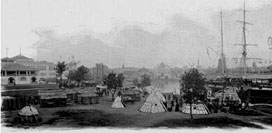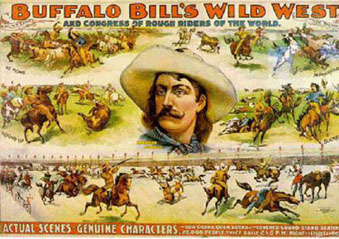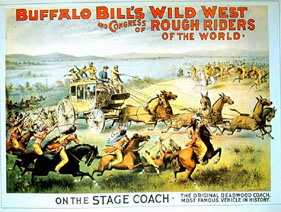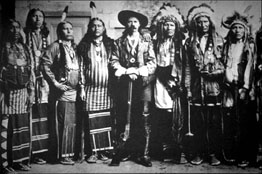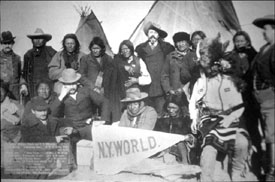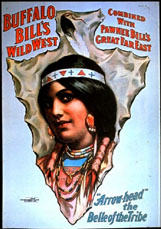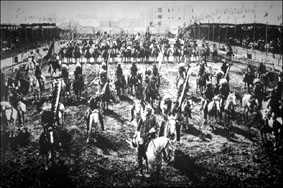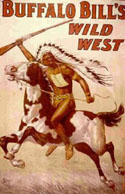Meanwhile,
only a short walk from the "White City" and the rest of the
Exposition was Buffalo Bill’s
Wild West show!!! |
|
Though
not technically a part of the Fair, William Cody set up his traveling
show just outside its
gates. The show recreated the theme of the “winning of the
West” and Native American people—many of them Lakota
men who had fought the United States and been imprisoned at Fort
Sheridan (just outside of Chicago) for participating in the illegal
Ghost Dance movement and released only after Buffalo Bill petitioned
for them—assumed roles that portrayed them as heroic warriors
of a vanishing culture.
|
Buffalo
Bill’s Wild West Show had been in existence for
over a decade by this point, had traveled all over Europe
(including
a performance for Queen Victoria) and was extremely popular. |
In
fact, Cody’s Wild West Show was so popular that
these images of Plains Indian warriors in sham battles
came to
determine for most Americans what ALL Indians should
look like. Real Indians were bare-chested, wild, whooping
and
hollering warriors who wore feathers, lived in tipis,
rode horses, and shot arrows at wagons and burned settlers’ cabins. |
|
|
All
this even though most of the Native performers in these
shows wore Western dress when not performing. |
Native women were portrayed somewhat
differently...although they too were part of a racializing discourse. |
|
|
Although
the Wild West shows had died out by the early 1930s, largely
victims of the burgeoning film industry, the “heroic
warriors of a vanishing culture” discourse was continued
by Hollywood movies and the Boy Scouts. |
The
quintessential “Imagined Indian” had become
firmly entrenched in American culture. |
|
This
was also the time when the University of Illinois chose a mascot
to perform at its athletic events.
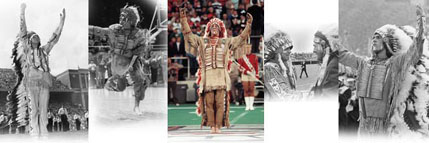
Continue
to Page 6
Back
to Page 4
|


